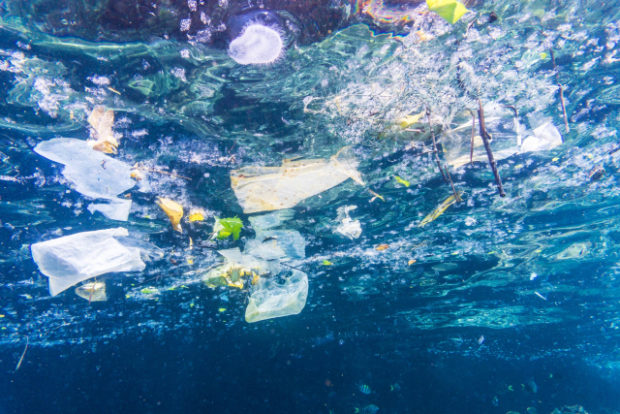
Four other nations and 18 multinationals have also pledged to help ensure 100 percent of plastics are recyclable by 2030 and to develop more viable alternatives to plastic packaging, in order to slash waste.
© Placebo365 / IStock.com
MANILA, Philippines — The Senate on Monday approved on third and final reading a bill that would require large companies to adopt policies for the proper management of plastic packaging waste.
Twenty-two senators voted to pass Senate Bill No. 2425, which seeks to amend Republic Act No. 9003 or the Ecological Solid Waste Management Act to institutionalize the Extended Producer Responsibility (EPR). No senator voted against or abstained from voting on the measure.
Through the EPR, “obliged” companies “have the responsibility for the proper and effective recovery, treatment, recycling or disposal of their products after they have been sold and used by consumers” in order to reduce packaging waste generation and improve the recyclability and reusability of packaging wastes.
These companies include producers, manufacturers and importers of consumer goods using plastic packaging, according to the bill.
They shall be “responsible for making financial contributions to support the collection, recovery, transportation, processing, recycling and disposal of their plastic packaging wastes,” it added.
Micro, small and medium enterprises (MSMEs) would not be required to have EPR programs under the bill.
Under the measure, producers, distributors, retailers implementing EPR programs would be eligible for tax incentives.
Senator Cynthia Villar, who sponsored the bill as chairperson of the Senate environment committee, said the bill was crafted in response to the clamor for the regulation of single-use plastics and its production, importation and disposal by industries.
“It is not a solution in itself, but it is a move in the right direction, I believe. We need to rescue our country from being a marine litter culprit and demonstrate that a developing country can and will make this work,” she said.
If enacted into law, companies covered by the bill are given targets to comply with until 2030 in order to “improve their performance over time.”
Meanwhile, failure to comply with the mandated EPR and failure to meet targets will be penalized with fines ranging from P5 million to P20 million.
“It is a sad reality that the Philippines is not in a good place when it comes to plastic wastes. The Philippines is the world’s third largest source of plastic waste leaking into the ocean and we have yet to improve our ranking. We hope to contribute in solving this through this legislation,” Villar went on.
“The EPR bill is not meant to put additional burden to the companies who are plastic packaging wastes generators, but rather it is an acknowledgment and a call for help that plastic waste problem will not be solved without their invaluable cooperation,” she added.
RELATED STORY:
Top plastic waste polluters still the same, says audit report